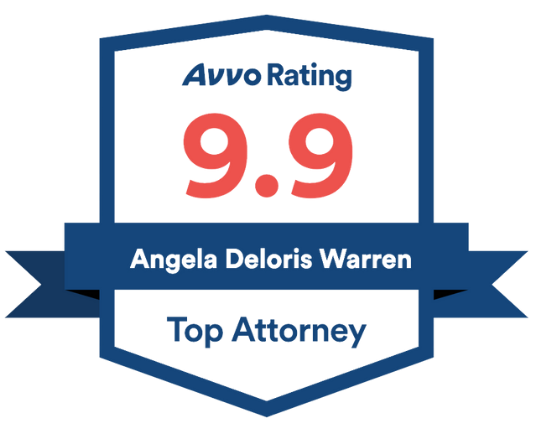EB-4 Visa: Employment-Based Special Immigrant Visa
Home » Work Visas and Employment Green Cards » EB-4 Visa: Employment-Based Special Immigrant Visa

An EB-4 visa is a special employment-based immigrant visa that allows certain noncitizens that don’t fall into other categories and aren’t investors to live in the United States. The EB-4 visa is for people with special employment arrangements or special situations that are considered “Fourth Preference” immigrants. The term “employment-based” is used loosely though because some EB-4 visas are given to people that don’t even have jobs.
You may be eligible for an EB-4 visa if you can prove that you fit into a special immigrant subcategory. The special immigrant subcategories include:
- Religious workers
- Special Immigrant Juveniles
- Certain broadcasters
- S. armed forces member
- Certain physicians
- Certain others
As you can see, the EB-4 category is quite diverse. This guide explains the subcategories of EB-4 visas, discusses the steps for applying for an EB-4 special immigrant visa, and answers some of the frequently asked questions about EB-4 visas.
EB-4 Visa Guide
United States Citizenship and Immigration Services (USCIS) has five categories for employment-based visas. EB-4 visas are an immigrant visa. That means they make EB-4 visa holders in the U.S. eligible for green cards and allow the noncitizens to stay in the United States indefinity.
EB-4 Subcategories
Religious workers. This category has experienced some downsizing. To qualify in the coming years, you will need to be a minister coming to work as an employee for a U.S. registered non-profit religious organization or a non-profit organization that is affiliated with a genuine religious denomination in the country.
Special Immigrant Juveniles. The Special Immigrant Juveniles subcategory doesn’t involve a job or job offer, but if you are an SIJ, you can seek an EB-4 visa. There is no employer requirement, so there is no labor certificate needed. Family members can’t use your EB-4 visa for their own derivative visa in this subcategory either. You must be unmarried, under 21 and living in the United States. Other eligibility requirements also exist.
Certain broadcasters. If you are a noncitizen coming to work in the United States as a broadcaster for United States Agency for Global Media or for a grantee of USAGM, you may qualify for an EB-4 visa.
U.S. armed forces member. You might qualify for an EB-4 visa if you have served or are serving honorably on active duty for a specific length of time. If you have only served 6 years, but promise to serve another six, then you might qualify.
Importantly though, you must be from a country that lets its nationals enlist in the U.S. armed forces by treaty. This is an often unrealized factor that can be devastating to U.S. veterans who thought that they might be able to live permanently in the United States through military service. The only countries that currently allow this by treaty are the Philippines, the Republic of the Marshall Islands & the Federal States of Micronesia.
Certain physicians. Certain physicians came to the United States at a time when the nation was in dire need for doctors. To qualify for this subcategory of special immigrant, you must have graduated from a foreign medical school or had a license to practice medicine in a foreign county. Plus, you had to be practicing medicine with a full and permanent license in the United States on January 9, 1978.
Other EB-4 subcategories. Other subcategories are even more complex than the more common ones explained above. They include, but aren’t limited to, certain translators, certain S nonimmigrants, some former employees of a G-4 international organization, some NATO-6 civilian workers, some employees of the United States government, former Panama Canal company employees, and former Canal Zone government employees. If you think you may qualify for a special immigrant visa, please contact Warren Law Firm so that we can discuss your qualifications.
Request A Consultation
Meet The Attorney
Angela D. Warren
With more than 20 years of immigration and business immigration experience, Angela Warren has helped hundreds of individuals, families and businesses.
Main Services




Get The Immigration Help You Deserve
How to Apply for an EB-4 Visa
 The EB-4 category is known as “Fourth Preference” and it is not just special because of the diversity of subcategories of immigrants, it is special in many ways. For example, EB-4 visa hopefuls usually must be the beneficiary named on a I-360, Petition for Amerasian, Widow(er), or Special Immigrant. Some of the subcategories require you to self-petition. Other subcategories require that an employer petition for you. Still others don’t require an I-360 petition at all.
The EB-4 category is known as “Fourth Preference” and it is not just special because of the diversity of subcategories of immigrants, it is special in many ways. For example, EB-4 visa hopefuls usually must be the beneficiary named on a I-360, Petition for Amerasian, Widow(er), or Special Immigrant. Some of the subcategories require you to self-petition. Other subcategories require that an employer petition for you. Still others don’t require an I-360 petition at all.
Another special difference about EB-4 special immigrants compared to other employment-based immigrant categories is when and how to file Form I-485, Application to Register Permanent Residence or Adjust Status in order to use their immigrant visa to get a green card. USCIS policy makes it so that some EB-4 visa holders can file the I-485 at the same time as their immigrant petition, but most special immigrants must wait until after the petition is approved.
To make matters even more confusing, some subcategories must file their I-485 before a certain deadline. It’s always important to get help from an immigration attorney when filing visas, but the EB-4 visa is so complicated that this category makes attorney guidance that much more important.
EB-4 Visas: FAQs
Can my Form I-360 be sped up with the USCIS Premium Processing service?
While you can pay for Premium Processing Service for many other employment-based visas, the EB-4 visa really is a one-of-a-kind visa. The EB-4 visa petition uses Form I-130, and, unfortunately, premium processing isn’t an option with Form I-130.
If I’m approved for an EB-4 visa, can my family apply for visas as derivative applicants?
As with most questions involving the EB-4 visa, it really depends on your situation and your subcategory. For example, Special Immigrant Juveniles aren’t allowed to have derivative applicants. Once you and an attorney discuss which subcategory you fall into, if any, they will be able to answer that more definitively.
Let an Experienced Immigration Attorney Help with Your EB-4 Visa
Warren Law Firm has over 20 years of experience in immigration law. If you are seeking an EB-4 visa, our skilled immigration team will evaluate your qualifications and discuss any concerns with you. We help bring people’s immigration dreams to life every day, so if an EB-4 visa isn’t a good fit for you, there might be other options. We look forward to learning how we can help you achieve your immigration dream.
